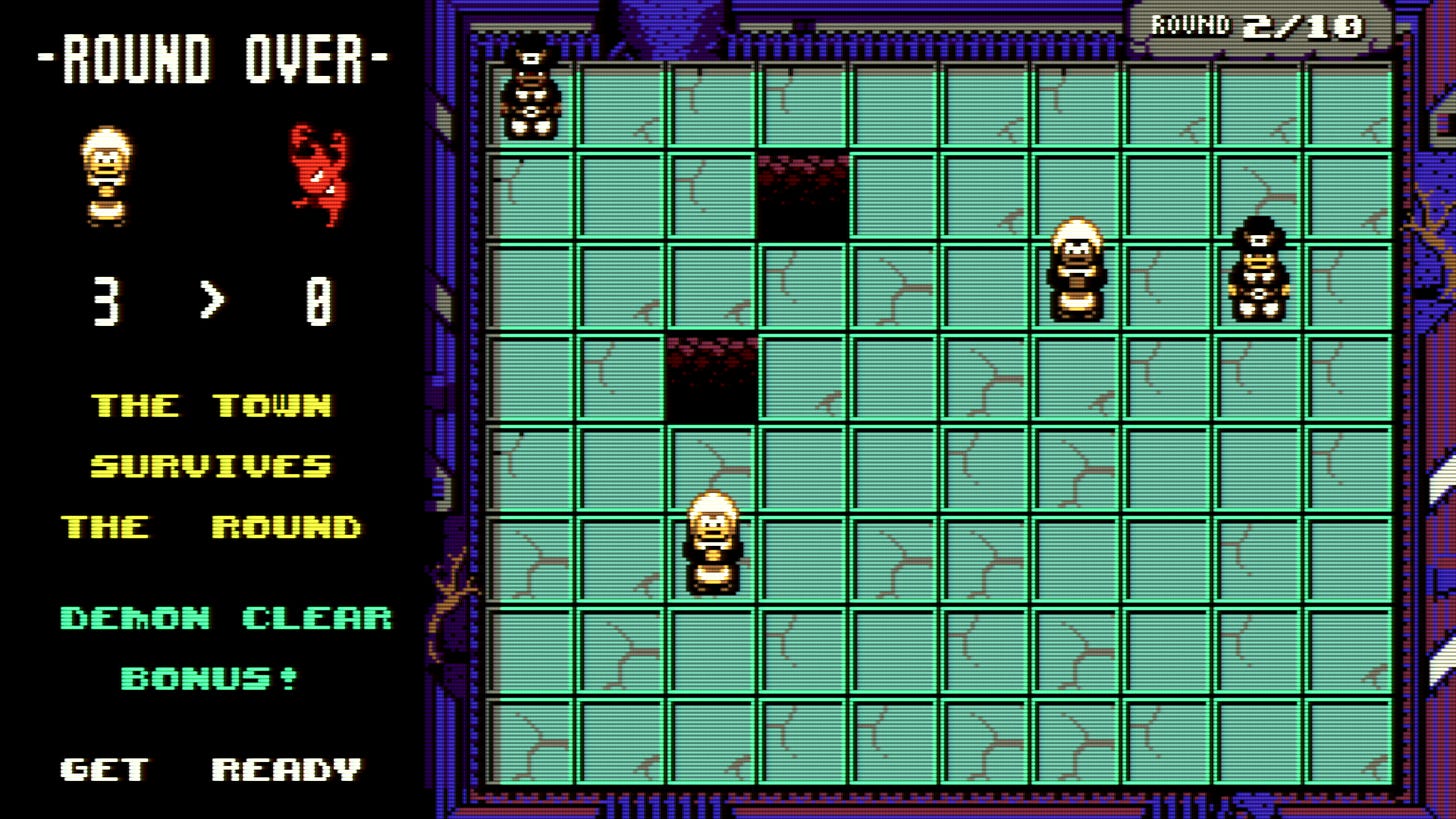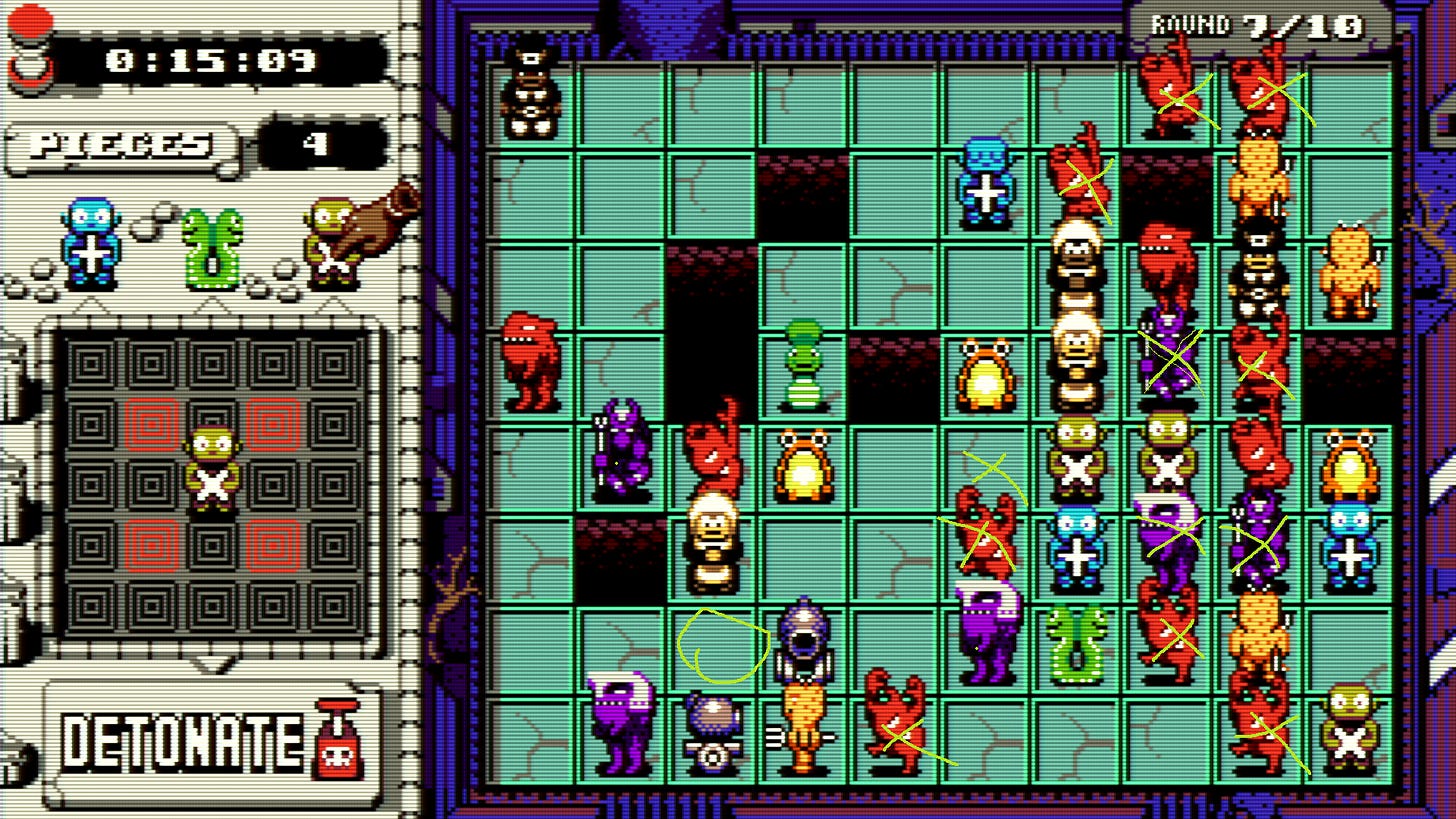As we reach game number 10, one fifth of the way through this collection, I wanted to take a brief moment to reflect on the journey so far.
These are stunningly designed things, the games of this collection. Each one feeling nourishing and complete in a way that frames the craftsmanship of it’s own creation as a victory in itself. Beyond this there is a fascinating narrative thread going through all of this, telling a story in a way I’ve never seen before.
Each game in UFO 50 has a little blurb, keeping up the kayfabe of this fictional console and these fictional creators, but alongside that there is another tale unfurling, through the mechanical relationship that each game has to one another. It’s subtle, and in some cases a bit of a stretch, but you can see a lineage of design ideas throughout that feels like a conversation with the past.
This is why, to me, UFO 50 is the love letter to end all love letters. It understands that it’s not enough to slap some pixel graphics and a chiptune soundtrack on some tired old paradigm and call it a day.
Everything that came before is the product of a generations worth of inspiration. A conversation with the world, with a zeitgeist no matter how niche or impractical. Art begets art begets art and to have such a generational idea expressed so perfectly in just one game is nothing short of genius.
Ok, back to normal programming. Devilition, right? It’s a bit bloody good!
Tracking on from the organised chaos of Attactics, and with a little pinch of Bug Hunter, Mortol and, believe it or not, some Magic Garden thrown in there for good measure, this fiendish strategy game carries within it a load of really engaging design principles that made me keep coming back time and time again.
It’s the little things, at first, like how easily readable each unit is. They’re like chess pieces. You see a particular design and instinctively know where it’s attack zones are going to be on the board and how you can use it to your advantage.
Of course for this particular brand of strategy the key component of all your thoughts is the constraints bestowed upon you. You have x number of units to clear the board of critters, you need to have more townspeople than demons by the end of the round.

Getting a full clear adds to your population, and gives you an extra edge in the next round, but the townspeople themselves are at risk of annihilation as much as your malevolent foe, and must be factored into your decisionmaking, even if that decision is a calculated risk to sacrifice them for the greater good.
Of course a lot of thought has to come before this, and one of Devilitions most fiendish elements is that once a unit is placed down, you can no longer see the parameters of their attack. The game becomes a quest of memory as you contend with making sense of tactics that are both invisible and at the same time completely readable.

It’s a delicate balance, you see, to hold the player responsible for their own choices but at the same time ensure that they have all the tools to do so. One game that kept coming to mind while I was playing was Subset Games’ Into the Breach, a title that gave the player all the information they needed to get the job done, the critical element being a certain degree of literacy that was required.
Here, those same principles shine, but there is a cognitive spanner in the works, that being the seemingly random order in which units become available. It’s Tetris rules, in a way. You have a choice of three units at any given time, and must make your choices based on those units.
You can’t be flippant, your resources don’t stretch that far. Neither can you plan a round start to finish from minute one, you don’t have enough information to do so. You have to be sensible with what you have, because resources don’t fully replenish round to round, but survival might also depend on a couple more dudes being plonked down in just the right places.
It is in these constraints that I think Devilition has edged its way to the forefront of a genre already packed to the gills with quality offerings. Capturing everything brilliant about the strategy genre while also offering up that classic Mossmouth roguelike twist.
I could play this forever, it’s better than Chess.




